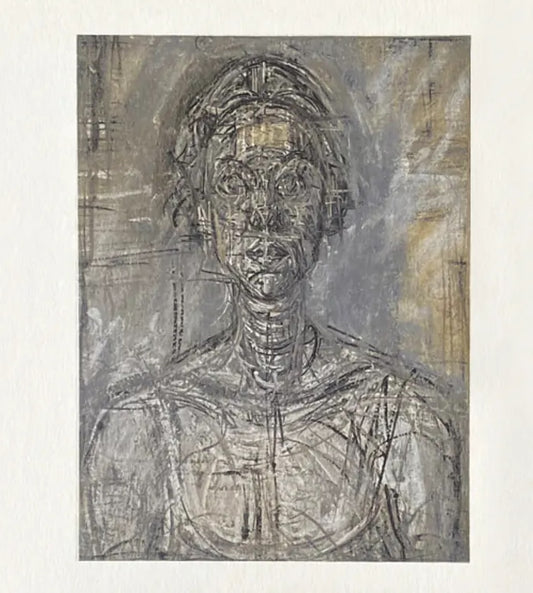Collection: Alberto Giacometti
Alberto Giacometti (1901–1966) Alberto Giacometti helped revolutionize representational sculpture with his withered, elongated human forms. The artist drew on the influences of Cubism, Surrealism, and African sculpture as he moved away from realistic constructions of the body and towards mythic, totemic bronzes. A sense of alienation permeates Giacometti’s work, evoking the existentialist thought of his friend Jean-Paul Sartre and the social and political upheavals that the artist experienced in early 20th-century Europe. Giacometti was born into an artistic family; his father was a Post-Impressionist painter. He studied painting at the École des Beaux-Arts in Geneva, and sculpture and drawing at the École des Arts et Métiers. His works belong in the collections of Art Institute of Chicago, the Kunstmuseum Basel, the Museum of Modern Art, the Guggenheim Museum, the Tate, and the National Gallery of Art in Washington, D.C., among others, and his sculptures have sold in excess of $100 million on the secondary market.

-
after Alberto Giacometti - Portrait (1959)
Prix habituel $180.00 USDPrix habituelPrix unitaire / par
If something catches your eye, write to us — we’ll offer you a special price.
We will get back to you as soon as possible. If you don’t get a response within 12 hours, please check your Spam folder.





